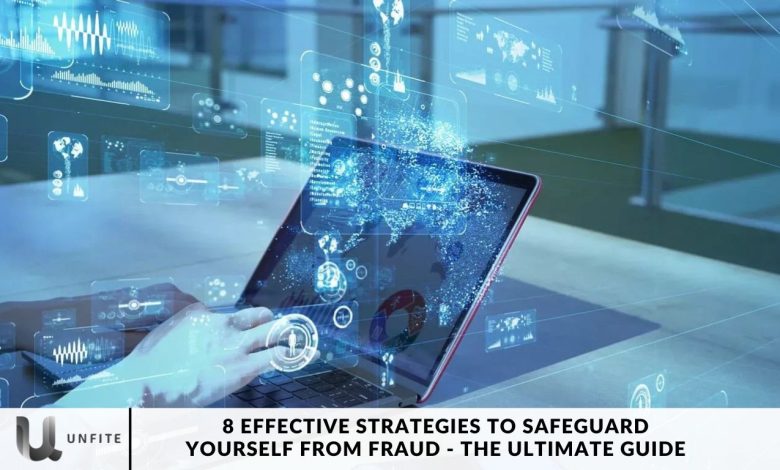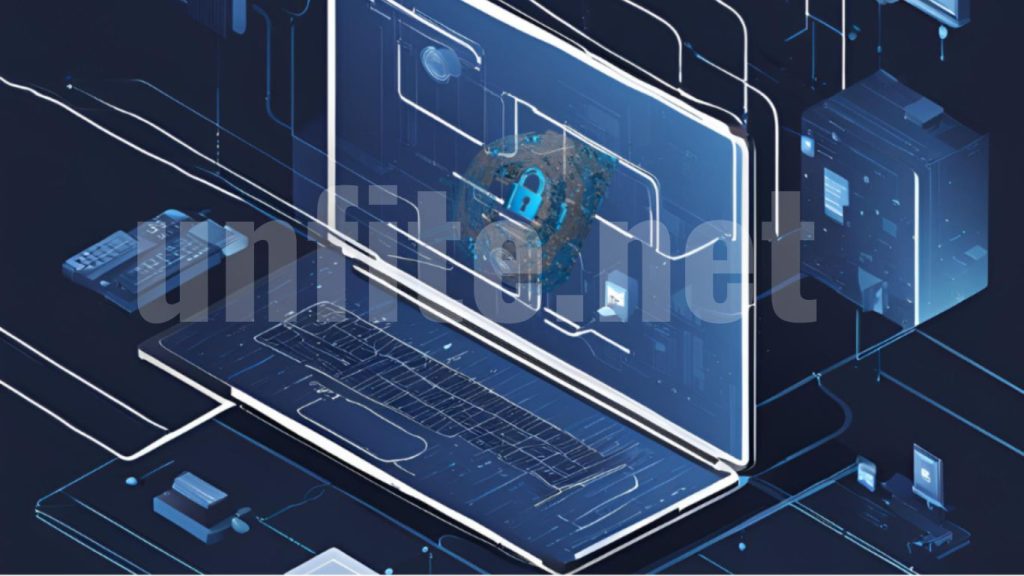8 Effective Strategies to Safeguard Yourself from Fraud – The Ultimate Guide

Protecting yourself from fraud has become more critical than ever. Whether you’re an individual or a business owner, securing your personal and financial data is vital.
This article will cover eight critical strategies for safeguarding against fraud. It offers straightforward and actionable advice tailored explicitly for our Indian audience.
8 Ways to Protect Yourself from Fraud
Guard Your Online Information
In the digital landscape, your online information is a valuable asset that requires protection. To ensure its safety, regularly update your computer’s security software.
Moreover, it’s essential to educate your employees about the risks of entering personal information on public computers, as these devices may harbor software designed to capture sensitive data.
When logging into accounts or exchanging information, particularly for banking or online shopping, always check for “HTTPS” at the beginning of the URL. This indicates a secure connection and helps safeguard your data.
Monitor Your Accounts
Regularly monitoring your financial accounts is a proactive approach to safeguarding yourself from fraud.
Log into your online banking or mobile banking app daily to stay updated on your balances and account activity. This practice allows you to quickly identify any unauthorized transactions.
Additionally, consider setting up online banking alerts to receive notifications about transactions or changes in your account, customized to your preferences. This way, you can stay informed and respond promptly to any suspicious activity.
Beware of Business Email Compromise
Business Email Compromise (BEC) is a common type of fraud that requires vigilance. Be wary of emails that mention changes to financial information, contain unexpected attachments or links, or request unusual actions.
Always verify any changes to financial data by calling a trusted contact before proceeding with any actions.
Keep in mind that scammers often try to rush their victims and play on emotions to provoke quick decisions. Please don’t allow them to pressure you; take a moment to pause and think critically before taking any action.
Pro Tip: Stop, Breathe, Ask
In high-pressure situations, fraudsters often attempt to coerce you into making quick decisions. If you ever feel rushed, take a moment to pause, breathe deeply, and assess whether the situation is legitimate.
Feel free to hang up and contact your financial institution or law enforcement for verification. It’s always better to be safe than sorry.

Shred Sensitive Documents
Proper disposal of sensitive documents is essential for protecting your information. Retain records such as ATM receipts, deposit slips, and checks deposited via mobile banking until you’ve reconciled them with your monthly statements. Once verified, be sure to shred these documents.
Keep your monthly checking and savings account statements secure until tax season. After that, shred them unless they are necessary for tax deductions.
To enhance your security further, consider signing up for eStatements, allowing you to access your statements online anytime, anywhere.
Check Your Credit Report
Regularly reviewing your credit report is crucial for identifying any suspicious activity. Pay close attention to accounts you didn’t open and any discrepancies that may indicate fraud.
You can obtain a copy of your credit report from providers such as Experian or Equifax. Additionally, some credit reporting websites offer alerts that notify you of any changes to your business credit score, helping you stay informed and proactive in protecting your financial health.
Think Twice About Sharing Information
Exercise caution when receiving calls or emails that request sensitive information. Never disclose confidential data unless you can verify that the source is trustworthy.
Phishing is a prevalent form of fraud in which scammers send fraudulent messages that mimic reputable sources. This deception often occurs through email, text messages, or phone calls, so always be vigilant and confirm the legitimacy of the request before sharing any information.
Implement Fraud Detection Tools
Consider implementing fraud detection tools to safeguard your business. Solutions like Positive Pay for Checks and ACH transactions automatically match your issued payments against those presented for payment.
This proactive approach allows your team to hold suspicious transactions for review, effectively preventing fraudulent activity and protecting your financial assets.
Report Suspicious Activity
If you suspect that you’ve become a victim of financial fraud, contact your financial institution immediately.
The sooner they are informed of the situation, the higher the chances of your funds being recovered. Promptly reporting suspicious activity is essential in mitigating the impact of fraud and protecting your financial well-being.

Frequently Asked Questions
What is fraud, and why is it important to protect myself against it?
Fraud involves deceptive practices to gain money or personal information illegally. Protecting yourself is crucial to safeguard your financial assets and personal information from being exploited.
How often should I monitor my financial accounts for suspicious activity?
It’s recommended to check your financial accounts at least once a week. Daily monitoring can help you catch unauthorized transactions quickly.
What steps should I take if I receive a suspicious email or call?
If you receive a suspicious email or call, do not disclose any personal information. Verify the source by contacting the institution directly using a trusted phone number or website.
How can I securely dispose of sensitive documents?
Shred sensitive documents, such as bank statements and receipts, once you no longer need them. This prevents unauthorized access to your personal information.
What is phishing, and how can I recognize it?
Phishing is a fraudulent attempt to obtain sensitive information through deceptive messages that appear to be from legitimate sources. Look for poor grammar, generic greetings, and requests for personal information as red flags.
How can I set up alerts for suspicious transactions?
Most banks offer online banking alerts that you can customize to notify you of transactions, changes in account balances, and unusual activities. Check your bank’s online platform or app for this feature.
Are there tools to help detect fraud in my business?
Yes, there are various fraud detection tools available, such as Positive Pay for checks and ACH transactions, which help match issued payments against those presented for payment to prevent fraud.
Conclusion
Safeguarding yourself from fraud requires vigilance, proactive measures, and a commitment to protecting your personal and financial information. By implementing these eight effective strategies—from regularly monitoring your financial accounts and being cautious with sensitive information to using fraud detection tools and securely disposing of documents—you can significantly reduce your risk of falling victim to fraudulent activities.
Staying informed and aware of the latest fraud tactics is essential in today’s digital landscape. By prioritizing security and taking timely action if you suspect fraud, you not only protect your assets but also contribute to a safer online community. Remember, prevention is always better than reaction; the more prepared you are, the more resilient you’ll be against potential threats.




